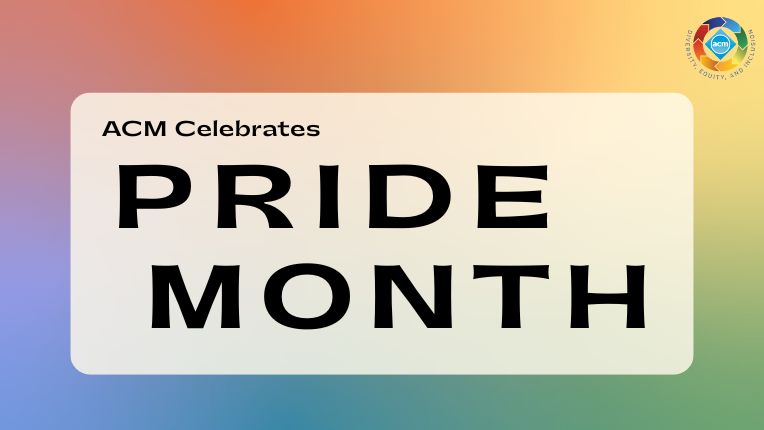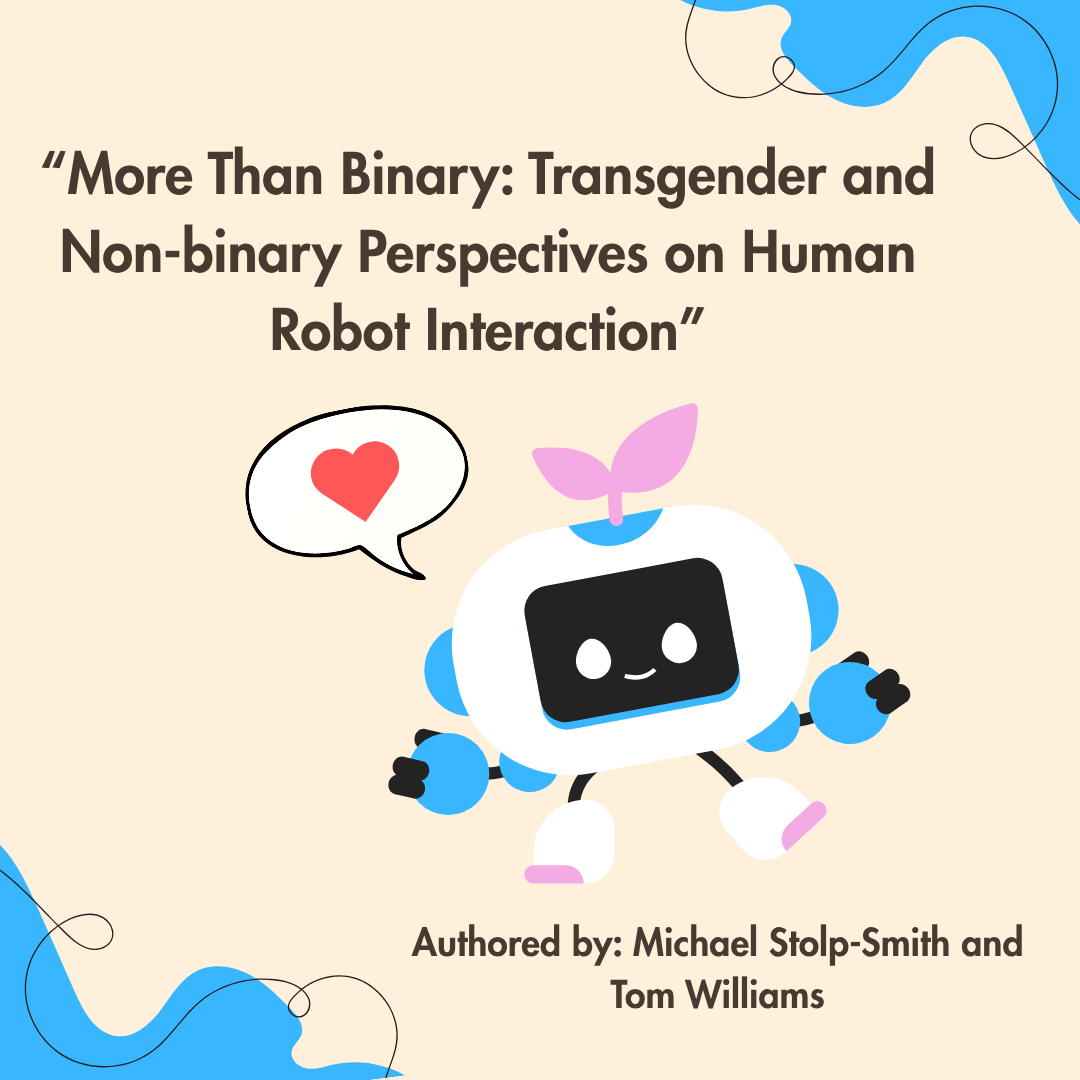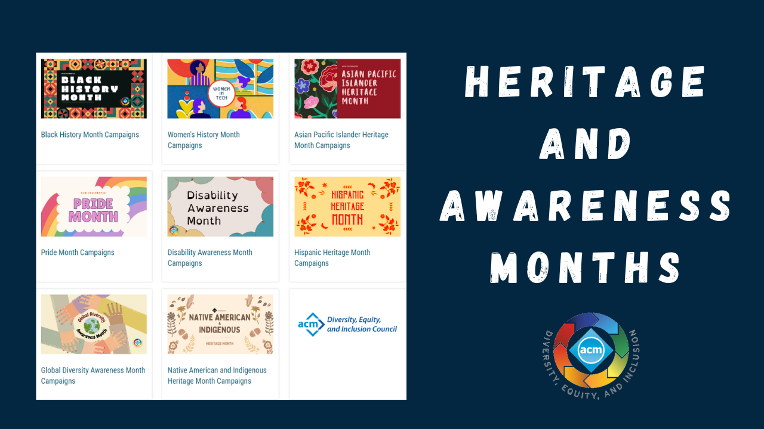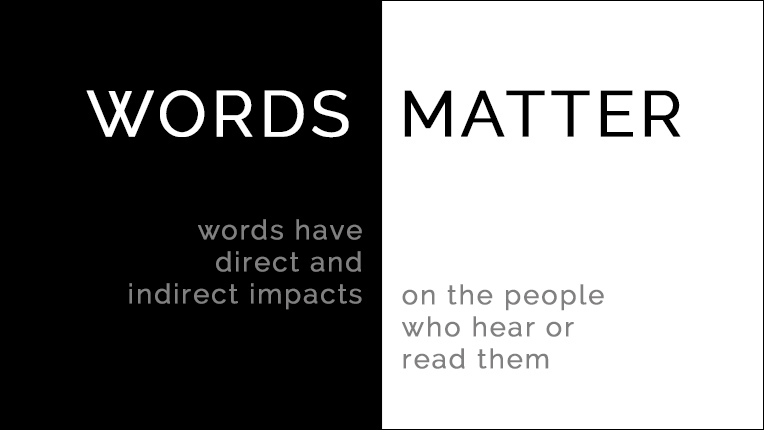ACM Celebrates Pride Month 2025

Throughout June 2025, ACM will celebrate Pride Month by highlighting articles that center LGBTQ+ topics and technology across social media platforms. With technology offering many opportunities to support the LGBTQ+ community, featured authors examine both its benefits and potential challenges. These articles encourage developers to include LGBTQ+ individuals when designing inclusive user interfaces and technologies. Articles will be available to read for free on ACM Digital Library and Communications of the ACM.

Can We Build AI That Does Not Harm Queer People?
With the rise of artificial intelligence (AI), AI safety is a contentious topic. While there are warnings of future potential harm that AI can have on humanity, Sabine Weber, author of the CACM article, “Can We Build AI That Does Not Harm Queer People?” covers the current harm that AI poses to queer people. Weber addresses the shortcomings in Large Language Models (LLM) training data and how its current library of knowledge may be influenced by negative portrayals of queer representation. Weber asks the questions of how we can build queer-friendly AI, what developers should be mindful of when training AI, and consider different approaches to confront AI safety. Read more of this article on the Communications of the ACM.
Cruising Queer HCI on the DL: A Literature Review of LGBTQ+ People in HCI
“Cruising Queer HCI on the DL: A Literature Review of LGBTQ+ Paper in HCI,” explores how the LGBTQ+ community is represented, discussed, and studied within the Human-Computer Interaction (HCI) research community. By reviewing over 1,000 HCI papers, the authors provide a comprehensive analysis of how LGBTQ+ topics are addressed in academic literature and how its representation has evolved over time. The article also explores how LGBTQ+ participants are treated in research studies, the language used to describe queer experiences, and highlights existing gaps in the HCI field. Read more of this study on the ACM Digital Library. Presented at CHI '24: Proceedings of the 2024 CHI Conference on Human Factors in Computing Systems.
A Playbook to be Proud of: Making the Case for LGBTQ+ Inclusive User Account Design
On digital platforms, users are often prompted to create digital representations of themselves through virtual avatars, screen names, and sometimes sharing personal information. However, these digital platforms frequently offer limited options, especially when it comes to gender identity and sexual orientation. In response, the authors of “A Playbook to be Proud of: Making the Case for LGBTQ+ Inclusive User Account Design” surveyed LGBTQ+ participants and technology product managers to develop a playbook aimed at helping developers build more inclusive user experience designs. Read more of this study on the ACM Digital Library. Presented at CHI '24: Proceedings of the 2024 CHI Conference on Human Factors in Computing Systems.

More Than Binary: Transgender and Non-binary Perspectives on Human Robot Interaction
Previous research has demonstrated that gendered robot designs lead users to project their own gender biases. While one possible solution is to avoid gender cues altogether, people still unconsciously assign genders to robots by factors such as name, voice, and pronouns. “More Than Binary: Transgender and Non-binary Perspectives on Human Robot Interaction,” takes an alternative approach by consulting transgender, and non-binary individuals in developing an agender robot designs. Researchers designed Wynn, a robot with they/them pronouns and gender-neutral voice to help normalize non-binary identities for future users. Read more of this study on the ACM Digital Library. Presented at HRI '24: Proceedings of the 2024 ACM/IEEE International Conference on Human-Robot Interaction.
Awareness Months Archive
Embracing diverse perspectives, backgrounds, and experiences enrich the ACM community and strengthen ACM's ability to support the global computing community. Awareness months are a time dedicated to reflection, education, and engagement to understand and embrace the diverse membership within the ACM community. Our archive display the past and current celebrations ACM have created to foster an inclusive and equitable environment for all within the computing community.

How Diverse Is Your Team?
ACM's Diversity, Equity, and Inclusion Council is an essential resource for SIGs, conferences, boards, and councils looking for best practices to improve diversity in their organization and develop programs with a broader reach in the computing community. Our guide provides examples of both inherent and acquired characteristics, which should be taken into consideration when looking at ways to improve the diversity of your team.

Words Matter
As part of ACM’s efforts to combat exclusion in the computing profession, ACM's Diversity, Equity, and Inclusion Council has launched an effort to replace offensive or exclusionary terminology in the computing field. They have developed a list of computing terms to be avoided in professional writing and presentations and offer alternative language. The Council plans to expand this list in the future and invites the community to submit suggestions for consideration.
